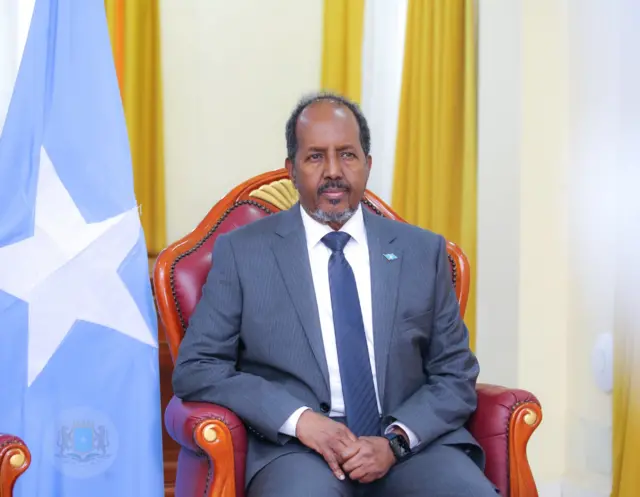Somalia’s Uncertain Path to the 2026 Elections: A Nation at a Crossroads
A Historic Turning Point in Somali Politics
As Somalia approaches the 2026 national elections, the nation Somalia stands once again on the edge of a critical political juncture. The promise Somalia of a “one person, one vote” democratic transition hangs in the balance, echoing both hope and apprehension. This ambitious shift from the deeply entrenched 4.5 clan-based power-sharing model to a universal suffrage system has reignited both domestic tensions and international scrutiny.

President Hassan Sheikh Mohamud has staked his administration’s credibility on this electoral transformation. Yet, the hurdles ahead are formidable. Without sweeping institutional reforms, consensus among federal member states, and guarantees of security, Somalia’s democratic future remains clouded with uncertainty.
The Legacy and Limitations of the 4.5 System
Somalia’s current political framework is grounded in the 4.5 power-sharing formula, which allocates parliamentary seats based on clan affiliation: four major clans receive equal representation, while minority clans share half a portion. Though intended as a temporary arrangement during the country’s post-civil war reconstruction, this model has become a lasting fixture.
Critics argue the 4.5 system reinforces tribal divisions, weakens national unity, and inhibits democratic development. It marginalizes minority groups and limits citizen participation by vesting disproportionate power in clan elders and political elites. The push for a universal suffrage model seeks to shift power directly to the people, allowing every Somali citizen to vote for their leaders.
Federal Tensions Threaten Electoral Progress
A significant obstacle to implementing electoral reform is the lack of unity among federal and state actors. Key federal member states—most notably Puntland and Jubbaland—remain resistant or noncommittal toward a centrally driven electoral process. Their leaders accuse the federal government of marginalizing regional authority and failing to consult state administrations in good faith.
The result is a standoff that paralyzes national cohesion, undermines preparations for the vote, and deepens the mistrust that has historically plagued Somali politics. Without the full cooperation of all member states, any attempt at a national one-person, one-vote election could face legitimacy challenges or outright rejection in some regions.
Opposition Forces Mobilizing Ahead of 2026
Somalia’s political opposition has begun organizing in anticipation of the upcoming election. Key political figures and movements are reviving coalitions, launching campaigns, and sharpening their rhetoric. Interestingly, many of these individuals were the opposition voices during the 2021 electoral impasse, including now-President Hassan Sheikh, who finds himself defending the same system he once criticized.
This role reversal has not gone unnoticed. Opposition leaders accuse the government of attempting to delay reforms, sideline rival voices, and manipulate the process under the guise of institutional preparation. These accusations are inflaming tensions and setting the stage for a potentially combative electoral season.
Security and Electoral Integrity Under Threat
Security remains a critical concern. Al-Shabaab, the militant insurgency group aligned with al-Qaeda, continues to launch attacks across the country. Their influence in rural areas poses a severe threat to voter registration efforts, the movement of election materials, and the safety of polling stations.
The Somali National Army, supported by ATMIS (African Union Transition Mission in Somalia) and international partners, has made progress, but full territorial control remains elusive. If large swathes of the population are unable to safely vote, the credibility of the election could be severely compromised.
Moreover, the country lacks electoral infrastructure, including reliable civil registries, biometric systems, and trained personnel. While donor nations have pledged financial and technical support, time is running out to deploy these tools at scale.
Public Sentiment: Cautious and Skeptical
The Somali public, having witnessed repeated cycles of political delays and constitutional crises, views the upcoming election with a mixture of hope and skepticism. Many citizens yearn for a voice in shaping their nation’s future, but fear another manipulated or disputed vote. The scars of the 2021 electoral deadlock under President Farmaajo—which nearly plunged the country into open conflict—remain fresh.
Public trust hinges on transparency, fairness, and political inclusion. If these elements are absent, frustration may boil over into unrest, or worse, a reversion to clan-based power plays and violence. Engaging the public through civic education, open dialogue, and independent media will be essential to maintain stability.
The Role of International Partners
International actors, including the United Nations, African Union, European Union, and the United States, have long supported Somalia’s democratization process. Their focus now is on pressing Somali leaders to commit to a clear, irreversible timeline for elections while backing the necessary legal, institutional, and logistical reforms.
However, these partners must strike a delicate balance between support and sovereignty. Heavy-handed external pressure could backfire, reinforcing anti-intervention narratives. Instead, sustained diplomatic engagement and support for grassroots civil society organizations may offer a more effective path forward.
What’s at Stake in 2026
The 2026 Somali elections are not just a procedural exercise; they represent a watershed moment in the country’s long and troubled journey toward stability and democracy. Success could galvanize national unity, marginalize extremist narratives, and unlock further international investment. Failure, however, could entrench division, reignite conflict, and push Somalia back into chaos.
The next year must focus on building consensus, enhancing institutional capacity, and safeguarding civil liberties. Somali leaders—both in Mogadishu and in the regions—must rise above short-term political interests and commit to a vision of shared governance and national renewal.
Conclusion: The Time for Action Is Now
Somalia’s uncertain path to the 2026 elections reflects both its painful past and its potential for transformation. With the clock ticking, decisive action is essential. This is a moment for leadership, compromise, and courage. A credible, inclusive, and timely vote could finally lay the foundation for lasting peace and prosperity.